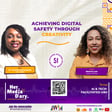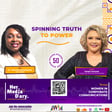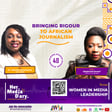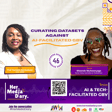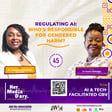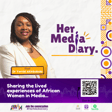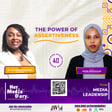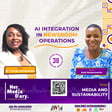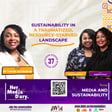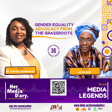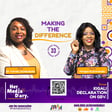
Her Media Diary Episode 13: "Draw the Line" with Moyo Thomas
Moyo Thomas is a news reporter and strategic communications specialist. Describing herself as a humanist and a womanist she is a sexual and gender-based violence advocate fighting for women's rights, security and safety.
In this episode, Moyo Thomas discusses the representation and presentation of sexual harassment and gender-based violence in Nigerian media and the cultural dimensions of gender equality.
Her call to journalists and media organisations is to be proactive in challenging male dominance in media leadership and more willingness to stop sexual harassment in the workplace. You don’t want to miss this episode
Subscribe to Her Media Diary now on your favourite podcasting platform https://linktr.ee/hermediadiary
Learn about African Women in Media https://africanwomeninmedia.com
List of organisations that support survivors
Masimanyane Women’s Rights International: https://www.masimanyane.org/
Gender Violence Recovery Centre (GVRC): https://gvrc.or.ke/
The Gender-based Violence Command Centre (GBVCC): https://gbv.org.za/about-us/
FORWARDUK: https://www.forwarduk.org.uk/i-need-help/
Woman’s Aid: https://www.womensaid.org.uk/information-support/
Women Empowerment and Legal Aid (WELA): https://welaonline.org/
MUSASA: https://www.musasa.co.zw/
